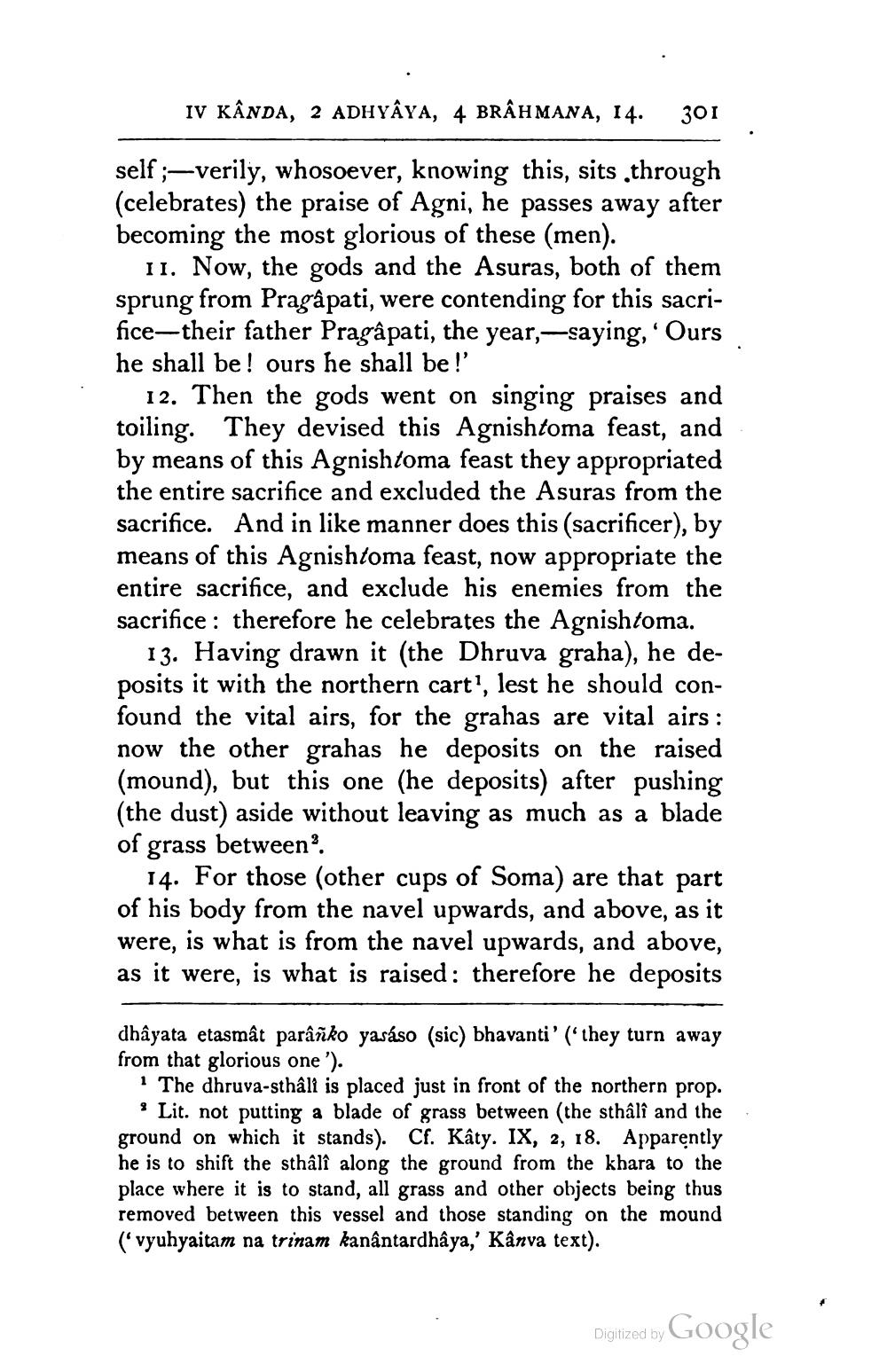________________
IV KÂNDA, 2 ADHYAYA, 4 BRAHMANA, 14.
301
self ;-verily, whosoever, knowing this, sits through (celebrates) the praise of Agni, he passes away after becoming the most glorious of these (men).
11. Now, the gods and the Asuras, both of them sprung from Pragâ pati, were contending for this sacrifice—their father Pragâ pati, the year,-saying, 'Ours he shall be! ours he shall be !'
12. Then the gods went on singing praises and toiling. They devised this Agnishtoma feast, and by means of this Agnishtoma feast they appropriated the entire sacrifice and excluded the Asuras from the sacrifice. And in like manner does this (sacrificer), by means of this Agnishtoma feast, now appropriate the entire sacrifice, and exclude his enemies from the sacrifice: therefore he celebrates the Agnishtoma.
13. Having drawn it (the Dhruva graha), he deposits it with the northern cart", lest he should confound the vital airs, for the grahas are vital airs : now the other grahas he deposits on the raised (mound), but this one (he deposits) after pushing (the dust) aside without leaving as much as a blade of grass between
14. For those (other cups of Soma) are that part of his body from the navel upwards, and above, as it were, is what is from the navel upwards, and above, as it were, is what is raised: therefore he deposits
dhâyata etasmât parâñko yasaso (sic) bhavanti' ('they turn away from that glorious one').
1 The dhruva-sthält is placed just in front of the northern prop.
* Lit. not putting a blade of grass between (the sthâlî and the ground on which it stands). Cf. Kâty. IX, 2, 18. Apparently he is to shift the sthâlî along the ground from the khara to the place where it is to stand, all grass and other objects being thus removed between this vessel and those standing on the mound ("vyuhyaitam na trinam kanântardhâya,' Kânva text).
Digitized by Google




